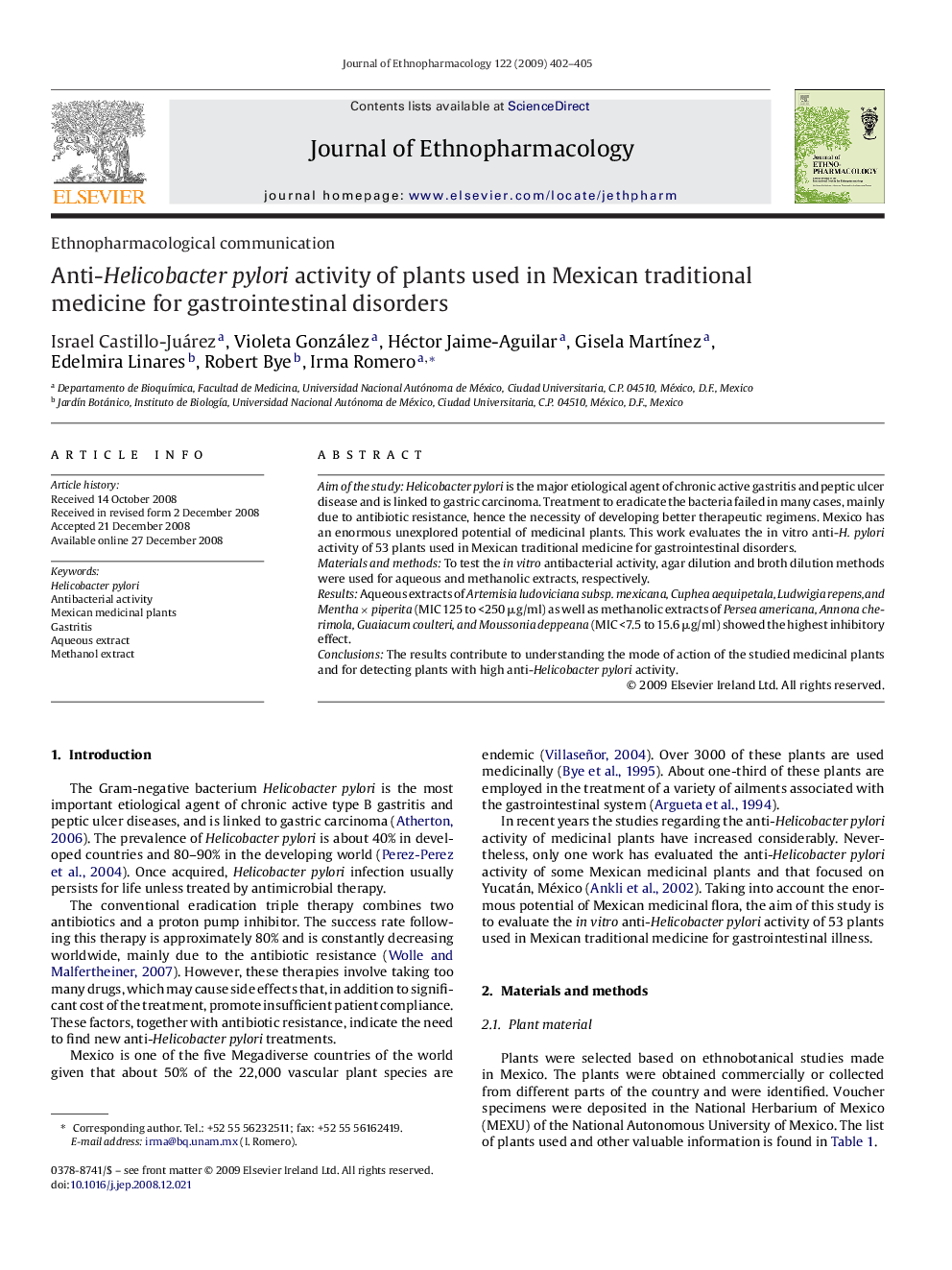| Article ID | Journal | Published Year | Pages | File Type |
|---|---|---|---|---|
| 2547024 | Journal of Ethnopharmacology | 2009 | 4 Pages |
Aim of the studyHelicobacter pylori is the major etiological agent of chronic active gastritis and peptic ulcer disease and is linked to gastric carcinoma. Treatment to eradicate the bacteria failed in many cases, mainly due to antibiotic resistance, hence the necessity of developing better therapeutic regimens. Mexico has an enormous unexplored potential of medicinal plants. This work evaluates the in vitro anti-H. pylori activity of 53 plants used in Mexican traditional medicine for gastrointestinal disorders.Materials and methodsTo test the in vitro antibacterial activity, agar dilution and broth dilution methods were used for aqueous and methanolic extracts, respectively.ResultsAqueous extracts of Artemisia ludoviciana subsp. mexicana, Cuphea aequipetala, Ludwigia repens,and Mentha × piperita (MIC 125 to <250 μg/ml) as well as methanolic extracts of Persea americana, Annona cherimola, Guaiacum coulteri, and Moussonia deppeana (MIC <7.5 to 15.6 μg/ml) showed the highest inhibitory effect.ConclusionsThe results contribute to understanding the mode of action of the studied medicinal plants and for detecting plants with high anti-Helicobacter pylori activity.
